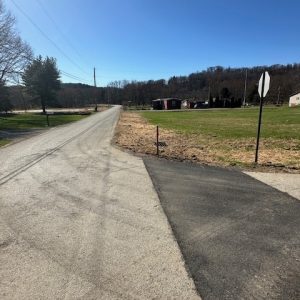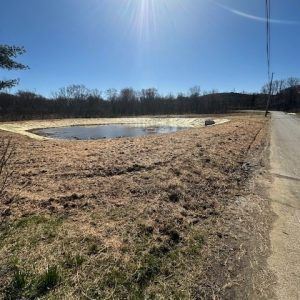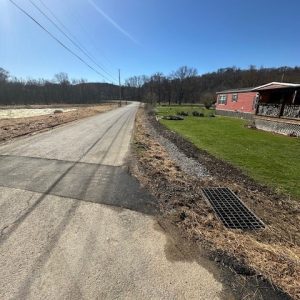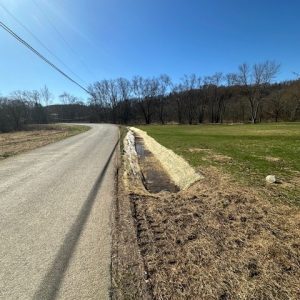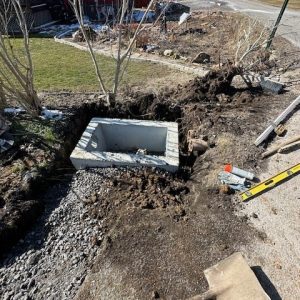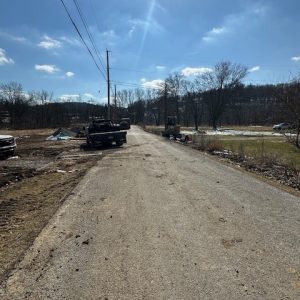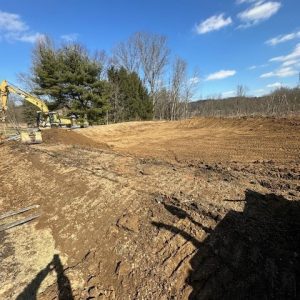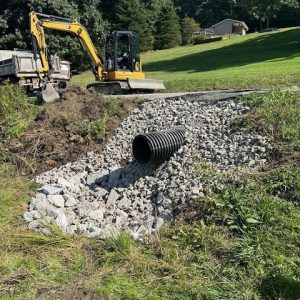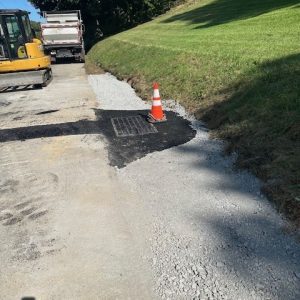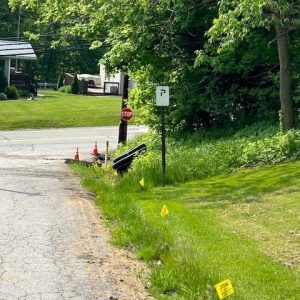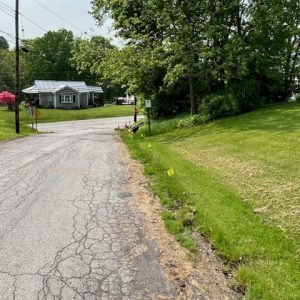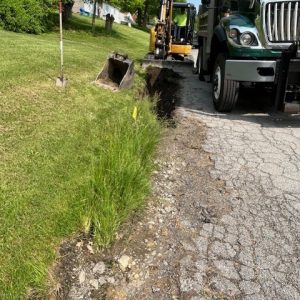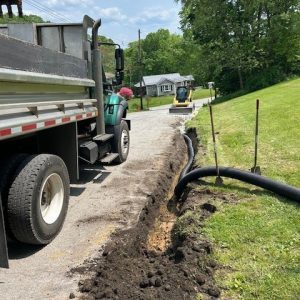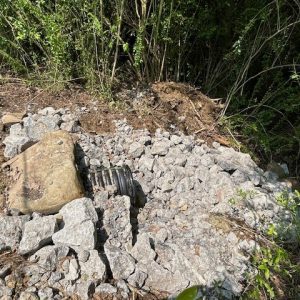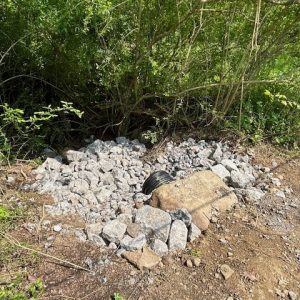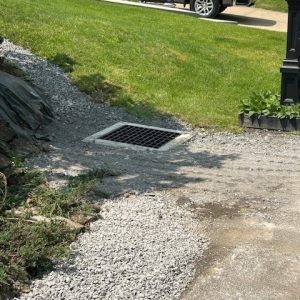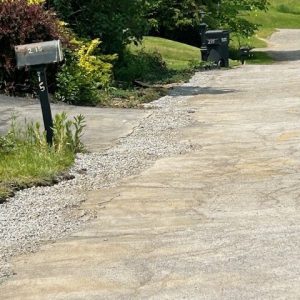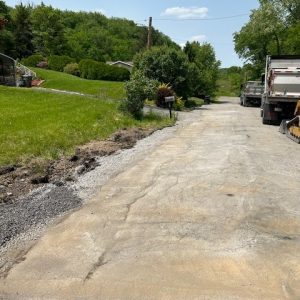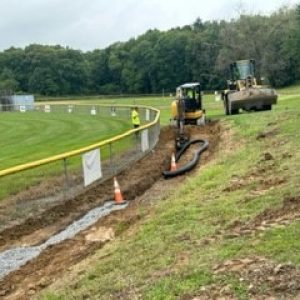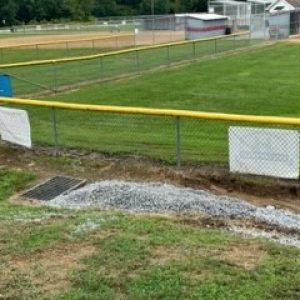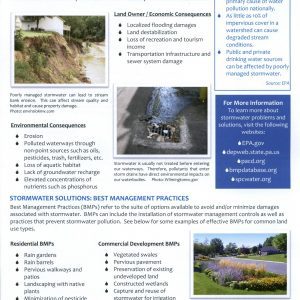MS4 Annual Reports:
2022-2023 signed
2021-2022
Pollution Reduction Plan Final Report: PRP 2023
Inspection Report: 2022 Inspection Report
Purpose
After years of discussions about the continued unfunded mandates and requirements handed down to Townships like New Sewickley regarding Stormwater runoff and pollution reduction requirements the Township Engineer’s completed a study to develop an equitable and fair Stormwater Management Fee system. The study was completed in August 2020 and was the basis for the Stormwater Fee Ordinance that was passed in December 2020. The study was completed to establish a dedicated revenue source for anticipated expenses associated with stormwater management infrastructure improvements and compliance with the Township’s regulatory requirements imposed by the Municipal Separate Storm Sewer System (MS4) National Pollutant Discharge Elimination System (NPDES) Permit issued to the Township by Pennsylvania Department of Environmental Protection (PADEP). A reasonable basis by which to establish the user fee system would be on the user’s anticipated contribution of stormwater runoff to the MS4 system or surface waters, best measured as the amount of impervious area contained on a property.
TOWNSHIP IMPROVEMENT PROJECTS FUNDED BY STORMWATER FEE
WILLOWMERE PARK 2023/2024
This project was completed to meet the goals of the Township MS4/Pollution Reduction Plan permit requirement. The detention facility will help reduce the sediment loading reaching the stream and will reduce the runoff discharge rate into Brush Creek.
Taffy Run Road 2023
This pipe project was completed by our Road Department to reduce flooding on the roadway.
Mabel Avenue
This pipe project was completed by our Road Department to reduce flooding on the roadway.
Pony League Field at Green Valley Park 2023
This pipe project was completed by our Road Department to reduce flooding on the Pony League Field.
Analysis of Property Types
The basis of the user fee was determined according to the present use of the parcel. For analysis, parcels were generally categorized into four groups as follows:
- Single Family Residential Property (A parcel containing and individual single family dwelling unit with a lot area of ten acres or less)
- Large Single Family Residential Property (A parcel containing and individual single family dwelling unit with a lot area of more than ten acres)
- Non Single Family Residential Property (Any developed property that is not a Single Family Residential Property or a Large Single Family Residential Property, including, commercial and office buildings, public industrial and manufacturing buildings, well pads, oil and gas facilities, multi-family dwellings, places of worship, parking lots or garages, schools and other educational facilities, etc. This includes individual units in a condominium association).
- Vacant Land (Properties with fewer than 600 square feet of impervious area and no dwelling)
Assessment of Fees for Individual Properties
To equitably assess fees for individual properties, an Equivalent Residential Unit (ERU) was established to represent the typical amount of impervious area on a Single-Family Residential Property in the Township. This value was based a statistical sample size of selected parcels. The ERU was determined to be 6,800 square feet. The intent of analysis of Single-Family Residential Properties was to establish a reasonable, representative value of all such properties for use as the ERU. This ERU is to be used as the fee basis for all Township properties as follows:
- Single Family Residential Property – 1 ERU
- Large Single-Family Residential Property – Determined based on actual impervious area proportionate to 1 ERU, rounded to the nearest one-half For example, a property with 25,000 square feet of impervious area would be assessed at 3.5 ERU.
- Non Single Family Residential Property – Determined based on actual impervious area rounded to the nearest one-half
- Vacant Land – No fee
Fee Recommendation
Distribution of anticipated annual expenses among the Township’s total 4,508 ERUs when accounting for potential credits results in a monthly per ERU fee of $5.84. For implementation, a $6.00/month/ERU fee is recommend. This equates to a $72.00 annual fee per ERU and an annual gross revenue of $324,558.00 collected for the Township Stormwater Fund. You can read the full report here.
General Information about Stormwater and the Township’s Pollutant Reduction Projects that are required to be completed.
In the case of stormwater, the amount of polluted water running off someone’s property is related to how much of the land is covered in hard surfaces—for example, rooftops, driveways, and patios—and for commercial properties, paved parking lots and service roads. More hard surfaces result in more runoff. Stormwater fees are therefore charged based on the area of these surfaces that exist on a property.
Stormwater fees help local governments pay for infrastructure projects and services that clean up pollution and reduce the amount of stormwater runoff reaching nearby streams and rivers as required by the DEP and EPA. While there is a wide range of solutions, most projects aim to slow down the runoff from developed areas by creating ways for more of it to soak into the ground, instead of rushing down driveways and streets directly into sewers and streams. When runoff can soak into the ground, there is less of it to cause flooding. In addition, it is cleaned as it filters through the soil.
Examples of practices that accomplish this include rain gardens, bioswales, green roofs, forested streamside buffers, permeable pavements, among others. In other parts of Pennsylvania, communities have plans—or are in the process of creating plans—that outline specific, on-the-ground projects to reduce stormwater pollution. Each of these projects has identifiable costs for which the stormwater fees will be used.
The fees stay local; they are used to fund stormwater projects that reduce pollution and decrease local flooding in the communities where they are collected. The fees are a dedicated funding source to help communities meet their stormwater permit requirements. They may not be used for other purposes.
Stormwater fees are not a “tax” on the rain. Property owners are not charged related to how much rain or snow falls; they are charged based on the area of their property that can’t soak up water. In other words, properties with more hard surfaces pay more in stormwater fees because they contribute to more of the problem. Properties with fewer hard surfaces pay less, because they contribute less to the problem.
New Sewickley Stormwater Fee Questions and Answers
Will this bill be yearly?
Yes, to meet the PA DEP and US EPA requirements, the Township will be required to continue yearly pollution reduction projects, maintenance of those pollution reduction structures, testing and maintenance of our storm water conveyance systems and other stormwater related projects.
Can I appeal the amount?
Yes, you can appeal the calculation of the Equivalent Residential Units (ERUs) on your property by using this form. All applications will be reviewed by the Township Engineer. Also, you can request a copy of the calculation of your properties ERUs to understand how the Township Engineering firm calculated your stormwater fee. Appeal Application (revised)
How was my property’s ERU calculated?
The minimum amount is $6 per month ($72 per year). The measure of impervious ground cover for a typical single-family residential Property used in assessing the fees for each parcel of Property, and which has been determined to be 6,800 square feet. Every property in New Sewickley that has at least 600 square feet of impervious surfaces will receive a minimum stormwater fee of $6 per month.
What is an impervious surface?
An impervious surface is a surface that has been compacted or covered with a layer of material preventing water from soaking into the ground. Impervious surfaces increase stormwater runoff and contribute pollutants. Example of impervious areas include; sidewalks, rooftops, compacted soils, gravel surfaces, roadways, parking lots, buildings, and other man-made structures.
Who is collecting this Fee?
Jordan Tax Service is collecting the fee.
What if I don’t pay the Stormwater Fee?
Just like a utility bill such as water or sewer, the Township can lien the property for unpaid stormwater fees.
Click here for a printable PDF of this information.
Is there a way for me to report illicit discharge?
Yes, please print off the following form and mail to New Sewickley Township, 233 Miller Road, Rochester, PA 15074, or email to info@newsewickley.com. iddcomplaintform
References
Ord 228 – Stormwater Management Ordinance – September 2022
Ord 229 Jordan Tax Service for Collection of Fees Liens for MS4
Stormwater Fee Report and Study – August 2020
2021-2022 Annual Report 2021-2022
NDPES MS4 Permit issued by DEP in 2018
Pollution Reduction Plan – Approved by PA DEP in 2018
Ordinance 202 – New Sewickley Township MS4 Operation and Maintenance Ordinance – December 2015
Ordinance 166 – Stormwater Management Ordinance – September 2004
Res 06-22 Stormwater Fees Credits
Developing a Stormwater Fee – Southwestern Pennsylvania Commission
What can I do to help with Stormwater?
What is Stormwater
Stormwater is water from precipitation that flows across the ground and pavement when it rains or when snow and ice melt. The water seeps into the ground or drains into what we call storm sewers. These are the drains you see at street corners or at low points on the sides of streets. Collectively, the draining water is called storm water runoff.
Stormwater becomes a problem when it picks up debris, chemicals, dirt and other pollutants and flow into a storm sewer system or directly to a lake, stream, river, wetland, or coastal
water. Anything that enters a storm sewer system is discharged untreated into the waterbodies we use for swimming, fishing and providing drinking water.
Federal stormwater Regulations and the Pennsylvania Stormwater Management Act require counties and municipalities to develop and implement a stormwater management program. These regulations, along with the Federal Cleanwater Act, govern what local municipalities must do to reduce discharge of pollutants into local rivers, streams, lakes and water sheds.
Communities that discharge stormwater into any waterway that the DEP identifies as “impaired”, are required to develop a “Pollutant Reduction Plan” (PRP). New Sewickley Township falls into that category. Because every MS4 faces unique stormwater challenges, each management plan is unique. This is a non-funded federally mandated program. Each of the “Pollutant Reduction Plans” (PRP) must be designed by our Township Engineers, constructed by our township employees and outside experts for many years to come. It is going to be expensive and get increasingly expensive in the years to come as the number of PRP sites increases.
Four specific areas of the Township have been identified by DEP as stormwater management areas. They are designated as MS4-1 9th Ext. Street Area, MS4-2 Northern Portion of Rt. 989, MS4-2 Southern Portion of Rt. 989 and MS4-3 Sunflower Corners Area. See the maps below
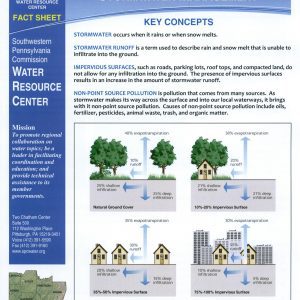
MS4-1 Area (Harvey Run Road & 9th Street Area)
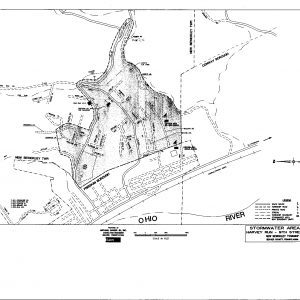
MS4 – 2 Area (Route 989 Northern Portion)
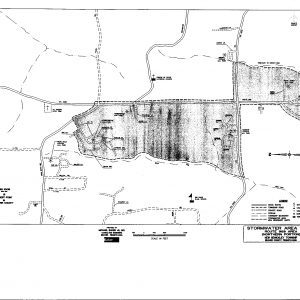
MS4 – 2 Area (Route 989 Southern Portion)
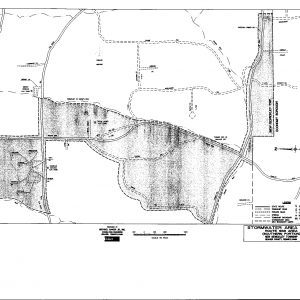
MS4 – 3 Area (Sunflower Corners)
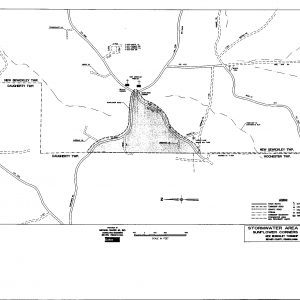
On-Lot Septic Systems
Does your property have an on-lot septic system? If you do, it is recommended that you have your system inspected and serviced by a professional technician at least once every two years. Failing septic systems can send harmful plumes of nitrogen, phosphorous, and bacteria into nearby waterways, threatening plant and animal life and endangering local water supplies.

